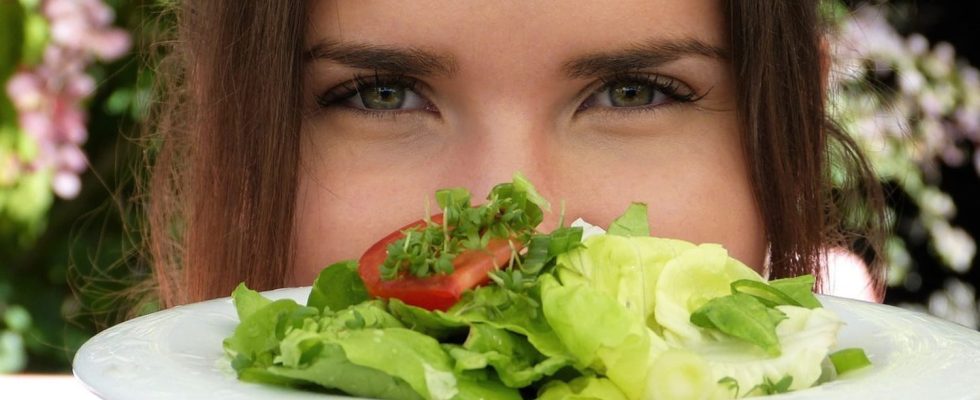They are marketed as healthy and even seem harmless. Discover 15 foods you should eliminate from your regular diet.
We all tend to rely on the appearance of a product to give it a qualifier: sweet, fatty, natural, healthy, and many more. However, as the saying goes: the habit does not make the monk. Discover these products that hide their game well but which are for some calorie bombs, for others stuffed with preservatives and for the last contain ingredients that you would never have imagined.
Smoothies
Mixed fruits, milk, water and sugar. The mixture seems harmless and almost synonymous with health. Well no. Some smoothies contain 600 calories, are loaded with sugar and are a real calorie bomb. On the other hand, smoothies containing more than one type of fruit can be harmful to the body due to the mixture of natural sugars, which is not always healthy, especially if you need to lose weight.
Flavored waters
Some flavored waters with extra doses of vitamins, in addition to being as high in calories as some sodas and juices, can be loaded with sugar. If you want to keep your water healthy and flavorful, add a slice of lemon or orange or even rosemary.
Granola
There are many combinations of granola: with honey, red fruits, raisins and different types of seeds and dried fruits. Depending on how it was prepared, 100 grams can contain 500 calories. Granola can be a great source of carbs, protein, and fiber, but when eaten in excess, it may not be your best weight loss ally.
Gluten-free pasta
Several market studies suggest an increase in demand for gluten-free and lactose-free products. Some nutritionists say it’s a fad. But be careful because some gluten-free options are compensated with low-nutrition flours and added fats for flavor. Unless medically indicated, do not opt for a gluten-free diet.
prepared hummus
If you prepare it “à la minute”, savor it until the end. But if you’re buying canned or jarred hummus, you’re not taking care of your fitness. Hummus has a shelf life of less than a day when prepared naturally. If the ones in jars can last for months, consider the colorings and preservatives that have been added to them.
Enriched cereals
In addition to being processed, some breakfast cereals marketed as healthy are high in carbohydrates in the form of sugar and are excessively calorie-dense. They must therefore be consumed from time to time and not daily. When shopping for your cereal, compare labels and opt for versions with more fiber and protein.
Sushi
It contains fish, seaweed and vegetables and rice. Sushi seems like a healthy meal, but it is only when eaten in moderation. Did you know that six pieces of fried shrimp can be 600 calories? Cream cheese, sweet sauce, mayonnaise, and fried pasta are other examples of how these calorie-dense ingredients can turn Japanese cuisine into an unhealthy option.
canned fish
Canned fish is a good way to consume this healthy food, but don’t overdo it. Canned foods are higher in calories, contain more salt and fats and contain preservatives. A study from Harvard University has detected harmful levels of Bisphenol A in the urine of people who eat these foods regularly. This chemical is considered an endocrine disruptor and is toxic, increasing the risk of certain types of cancer.
Dehydrated fruits
Some dehydrated fruits contain more sugar than candies and lollipops. So says Action on Sugar, a British NGO that warns about hidden sugar in food. A third of the nearly 100 packets of dehydrated fruit analyzed by this organization contained the equivalent of three or four teaspoons of sugar, and 85% contained more sugar than a known brand of German candy.
canned tea
Have you ever looked at the sugars on the label? Your canned tea is a stab in your diet. It is full of carbohydrates in the form of sugar, very harmful to health. A small can contains the equivalent of 20% of the recommended daily intake of this type of nutrient. Do the math.
vegetable crisps
We all knew chips were bad. But increasingly attractive new versions of industrial products that seem harmless, but are actually loaded with salt and fats, are appearing. This is the case with onion, pea, corn, beetroot, sweet potato, pumpkin and so on. In other words, it’s not the potato that’s the problem in chips, it’s the bath of fat in which it bathes. Replace the potato with a carrot, you will always have the fat!
vegan cheese
Even if you love cheese, but can’t betray your vegan diet, don’t be tempted by this type of food. They are highly processed, with texture, taste and color additives. They often contain a healthy dose of chemicals.
Olive oil
It contains healthy fats, but when heated to high temperatures it can be harmful. If you’re overusing stir-fries, stop. The longer olive oil is burned, the more saturated and oxidized it becomes. Despite the resistance of olive oil to high temperatures, these cause physico-chemical transformations in this ally of cardiovascular health. And don’t forget: the World Health Organization includes burned foods on the list of highly carcinogenic substances.
Prepared salads
When you order salads in a restaurant or shop, you are likely to see high calorie and excessively salty mayonnaise and sauces added. Prefer to prepare your own salads and choose light, low-fat dressings. If this is going to be your lunch, add chicken, tuna, or another protein-rich food, which is essential for proper muscle function and feelings of fullness.
fat free foods
Foods labeled fat-free — and of course, we’re not talking about fruits or vegetables — can contain harmful calories in the form of sugars or other harmful ingredients. Don’t buy “light” or “diet” products without also checking the labeling for protein, fiber, sodium, vitamins and minerals.
